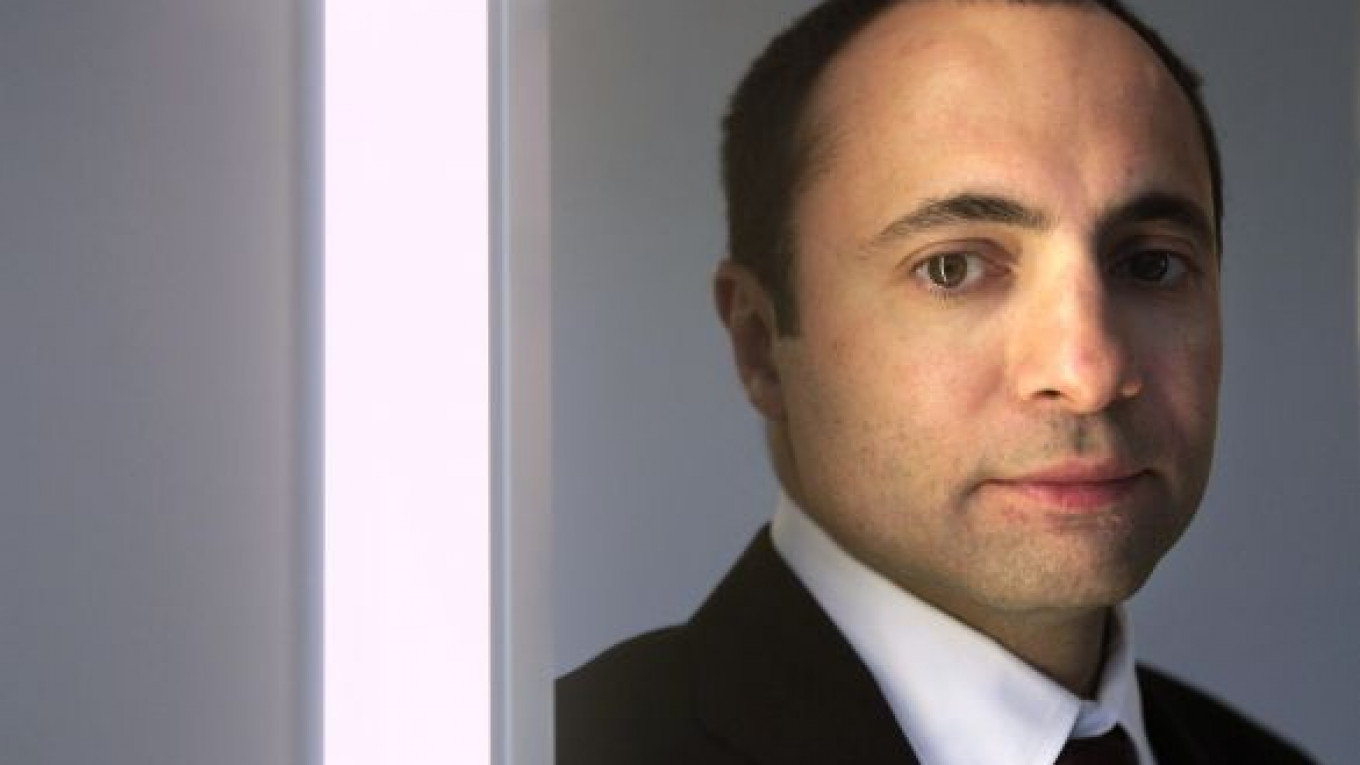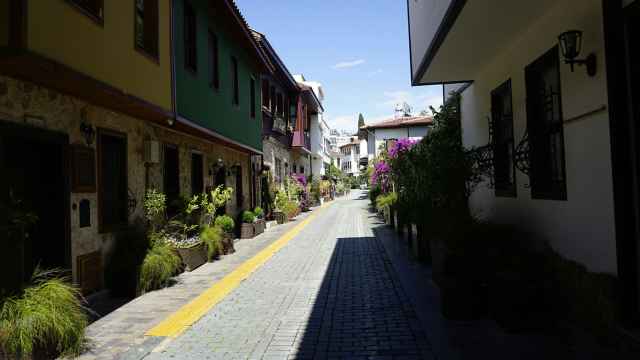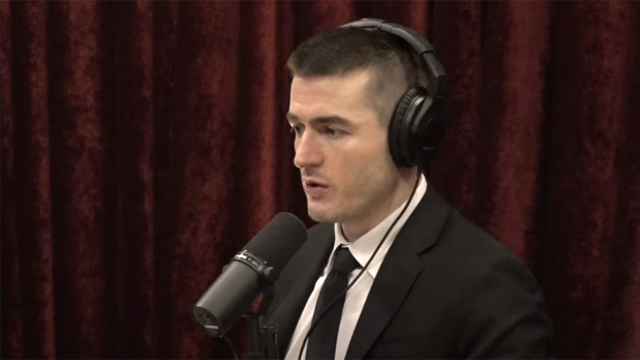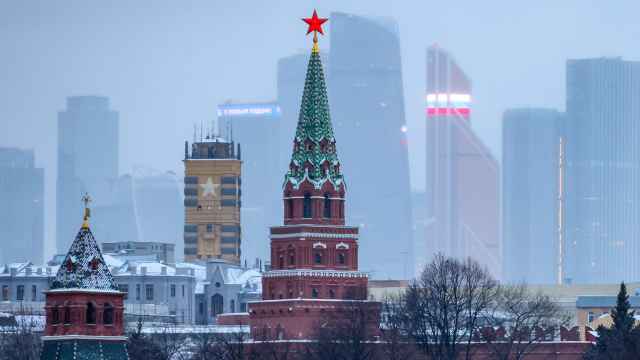He has lost much of his business, he has been arrested in absentia on charges of large-scale fraud, he has been placed on Interpol's wanted list, and he is unlikely to ever regain political office in the country.
But Ashot Yegiazaryan, who last year became the first sitting State Duma deputy ever to flee the country, is fighting back. In addition to a billion-dollar lawsuit against businessman and Senator Suleiman Kerimov, he claims to be the victim of a smear campaign in the United States, where he has been staying with his family since last summer.
Two months ago, Yegiazaryan filed a defamation suit in a New York district court in which he accuses Peter Zalmayev, a New York-based rights campaigner, of leading a campaign to tarnish his reputation in the United States.
The complaint, a copy of which was obtained by The Moscow Times, makes it clear that Yegiazaryan's case is more unusual than the country's run-of-the-mill business disputes, where usually one party claims that its business was stolen by another by means of corrupt law enforcement agencies.
What makes this dispute unique is the international political dimension and the fact that Yegiazaryan's opponents seemingly managed to trick leading human rights campaigners into taking sides in a murky dispute where it is not always easy to distinguish right from wrong.
According to the complaint, Zalmayev managed to mislead Lev Ponomaryov and Lyudmila Alexeyeva, the country's most well-known and respected human rights campaigners, to write to U.S. congressmen asking them not to back any asylum request from Yegiazaryan.
Both Ponomaryov and Alexeyeva retracted their letters in early February of this year, barely a week after signing them.
Reached by telephone Thursday, Ponomaryov acknowledged that the initiative for the letter had come form Zalmayev. "I made an error of judgment. I too make mistakes," he said.
In March, Zalmayev apparently convinced Freedom House, the Washington-based advocacy group set up by Eleanor Roosevelt, to co-sign a letter to U.S. Home Security Secretary Janet Napolitano, lobbying against Yegiazaryan.
Freedom House did not immediately respond to e-mailed requests for comment.
Zalmayev, who is director of the Eurasia Democracy Initiative, a nonprofit organization dedicated to the promotion of democracy and rule of law in Eastern and Central Europe, referred questions to his lawyer, James Golden.
"Peter is a long-time human rights activist whose background and activities contrasts strongly with that of Mr. Yegiazaryan," Golden said by telephone from Philadelphia.
He added that while a lot of people deserve political asylum, Yegiazaryan was not among them.
"He lives in Beverly Hills, which is a fancy place," he said.
Golden said Zalmayev had two weeks to respond to the complaint. He also voiced doubts that the suit would lead to a trial, saying he believed that the court would not admit it.
Moscow has officially started an extradition request, but Yegiazaryan has said that while he is cooperating with Russian law enforcement authorities, he won't return voluntarily because of safety concerns for him and his family.
Observers have said Moscow's extradition quest leaves Washington with a stark choice to either believe his claims or let him be extradited to a country whose justice system it has frequently questioned.
The letters all focus on Yegiazaryan's ties to Vladimir Zhirinovsky, the nationalist firebrand and leader of the Liberal Democratic Party, or LDPR.
Yegiazaryan has been an LDPR Duma deputy since 1999.
The activists complained that Yegiazaryan oversaw a Duma for human rights in Chechnya that turned a blind eye to atrocities during the war there. They also argued that Zhirinovsky's xenophobic and sometimes anti-Semitic stance hardly square with Yegiazaryan's self-portrayal as a political refugee.
His relations with Zhirinovsky also feature prominently in media publications, which Yegiazaryan says are part of the campaign against him.
Among them is a March 14 commentary by U.S. radio show host Leonid Komarovsky published on The Moscow Times' op-ed pages. Komarovsky accused Yegiazaryan of being anti-Semitic, noting that prominent LDPR members had made anti-Semitic remarks in the past that contributed to a prevailing climate of ethnic intolerance.
Yegiazaryan angrily denied Komarovsky's claims with a letter to the editor published March 23. The Moscow Times also published a commentary by Yegiazaryan on March 9 titled "The State Raided Me."
The comment followed a commentary by Yegiazaryan published in The Times on March 9, and Yegiazaryan angrily responded to Komarovsky's comment with a letter to the editor published March 23.
In the defamation suit, Yegiazaryan distances himself from Zhirinovsky, claiming that he "is not and has never been a member or a leader of the Liberal Democratic Party."
Rather, he says, he is a non-party candidate nominated to its parliamentary faction. "As such, Mr. Yegiazaryan is neither bound by the LDPR's program nor the decisions of its leadership," the complaint says.
Anna Krylova, a spokeswoman for the LDPR Duma faction, confirmed that information Thursday. She said that out of the party's 40 Duma deputies only 35 are currently party members.
But Yegiazaryan is as a party member on an archived Central Elections Commission web page showing candidates for the 2003 Duma elections. He is also listed as a current party member on the official site of the Duma's Budget Committee.
Confronted with this, Krylova, the faction's spokeswoman, said the information was wrong and that the party was not responsible for those sites.
The fact that Yegiazaryan is distancing himself from the LDPR is curious because his principal opponent, Kerimov, was also a card-carrying member of the party's Duma faction from 1999 to 2007.
Yegiazaryan claims that Kerimov played a key role in a corporate raid that forced him to cede his $2 billion stake in the prestigious Hotel Moskva real estate project.
The dispute has led to a high-profile arbitration battle in which Yegiazaryan also accuses former Mayor Yury Luzhkov, his wife Yelena Baturina and Arkady Rotenberg, an influential businessman and former judo partner of Prime Minister Vladimir Putin, of participating in the raid.
Zhirinovsky ousted Kerimov in summer 2007 from the party, saying the billionaire had refused to participate in regional elections. Kerimov subsequently secured a mandate in the Federation Council, where he represents his native Dagestan.
Analysts said Yegiazaryan, an ethnic Armenian, and Kerimov, an ethnic Lezghian, are typical examples that show Zhirinovsky's party is built more on commercial principles than the Russian nationalism touted by its leader.
"The LDPR is basically a commercial enterprise, and its main source of income is selling parliamentary seats," said Vladimir Pribylovsky, head of the Panorama think tank.
LDPR has denied accusations in the past about engaging in this practice, which is believed by analysts to be widespread among various factions in both houses of parliament but has not been proved in court.
A Message from The Moscow Times:
Dear readers,
We are facing unprecedented challenges. Russia's Prosecutor General's Office has designated The Moscow Times as an "undesirable" organization, criminalizing our work and putting our staff at risk of prosecution. This follows our earlier unjust labeling as a "foreign agent."
These actions are direct attempts to silence independent journalism in Russia. The authorities claim our work "discredits the decisions of the Russian leadership." We see things differently: we strive to provide accurate, unbiased reporting on Russia.
We, the journalists of The Moscow Times, refuse to be silenced. But to continue our work, we need your help.
Your support, no matter how small, makes a world of difference. If you can, please support us monthly starting from just $2. It's quick to set up, and every contribution makes a significant impact.
By supporting The Moscow Times, you're defending open, independent journalism in the face of repression. Thank you for standing with us.
Remind me later.







